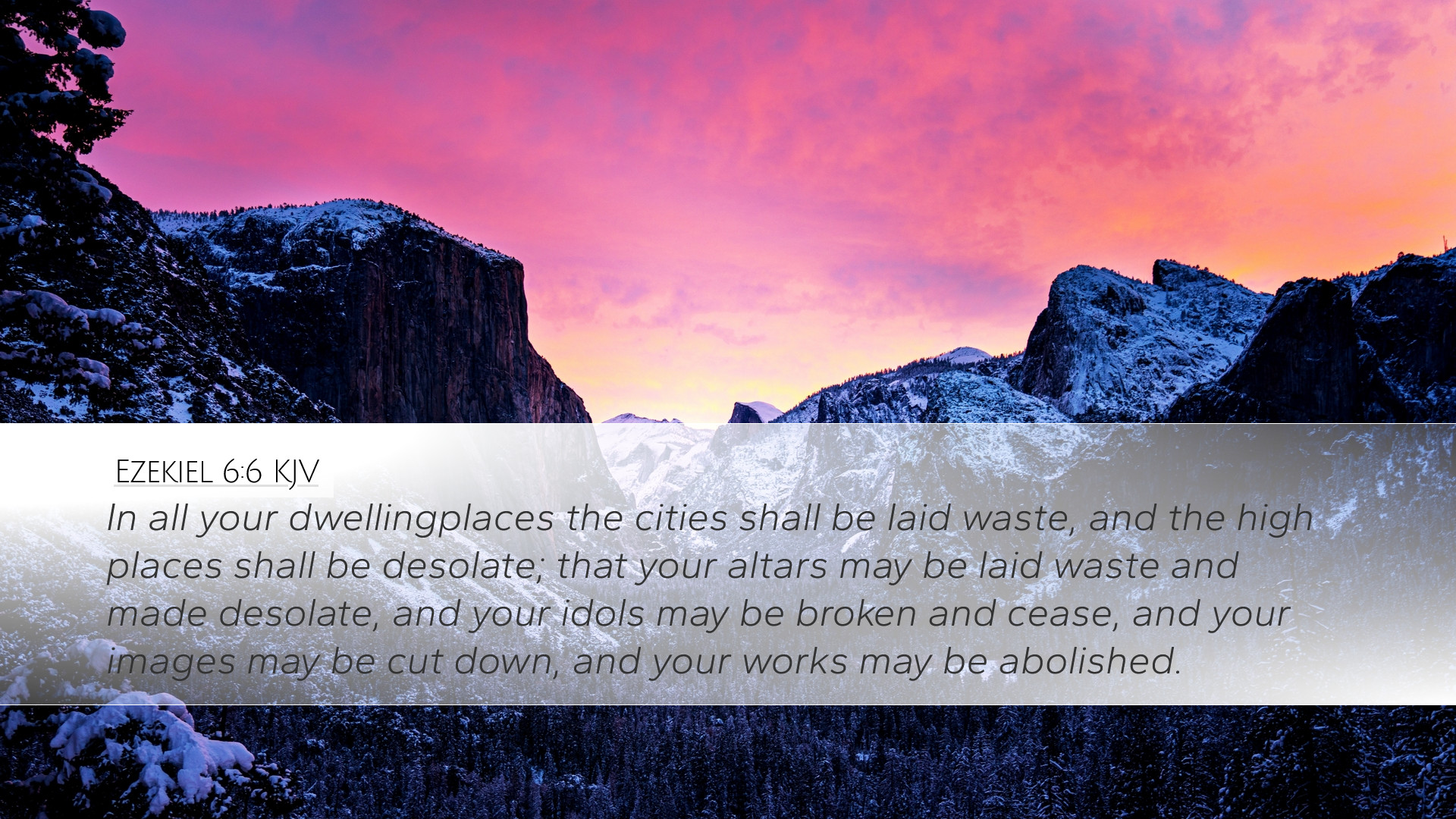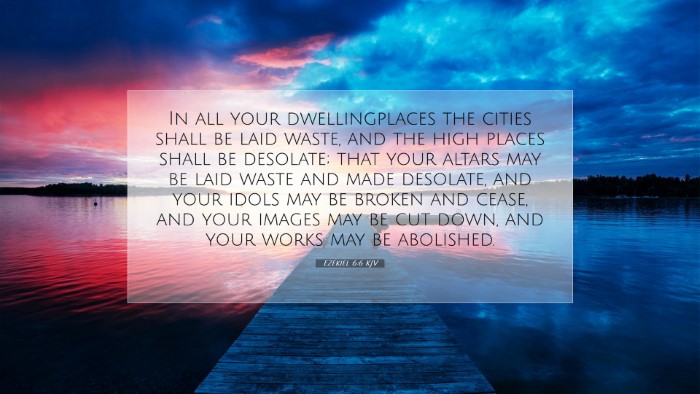Ezekiel 6:6 Commentary
Verse: "In all your dwelling places the cities shall be laid waste, and the high places shall be desolate; that your altars may be laid waste and made desolate, and your idols may be broken and cease, and your images may be cut down, and your works may be abolished."
Introduction
The verse Ezekiel 6:6 serves as a profound and sobering warning regarding the consequences of idolatry and unfaithfulness to God. The prophet Ezekiel, during a time of profound judgment and exile for Israel, articulates the catastrophic effects that will result from the abandonment of the true worship of God. Insights from various public domain commentaries such as those by Matthew Henry, Albert Barnes, and Adam Clarke will enrich our understanding of this passage.
Contextual Background
Ezekiel ministered during a critical period in Jewish history, particularly during the Babylonian exile. His prophecies often focused on judgment for sin and the hope of restoration for Israel. In Ezekiel 6, he emphasizes God's forthcoming judgment and the desolation that will be brought upon the land due to the people's idolatry.
Analysis of Key Phrases
- “In all your dwelling places”: This phrase underscores the comprehensive nature of God's judgment. It is not limited to the sacred spaces but extends to every home and neighborhood.
- “the cities shall be laid waste”: The cities, symbols of stability and community, will experience complete ruin. This devastation symbolizes God’s disfavor towards His people's spiritual decline.
- “the high places shall be desolate”: High places, often associated with idol worship, signify the areas where people sought to worship foreign gods instead of Yahweh. Their abandonment reflects God's desire to eliminate all forms of competing worship.
- “your altars may be laid waste”: Altars built for sacrifices to false gods will fall into disrepair, illustrating the futility of idolatry.
- “your idols may be broken and cease”: The breaking of idols serves as a powerful image of the impotence of false gods against the sovereignty of the One True God.
Theological Insights
Matthew Henry elaborates on the severity of the message, noting that the judgment was an act of divine justice. The high places represented rebellion against God's law, and their destruction signifies the removal of every obstacle to true worship.
Albert Barnes enriches our understanding by emphasizing that the physical destruction of cities and high places is a metaphor for spiritual desolation. He asserts that such destruction serves two purposes: a purification of the land and a stark reminder of God’s holiness and justice.
Adam Clarke draws attention to the notion of repentance. He posits that the destruction described is not merely punitive but serves as a call to the people to return to God. The physical symbols of their downfall can lead to spiritual restoration if they turn back to the Lord.
Implications for Modern Believers
For contemporary readers, Ezekiel 6:6 poses significant spiritual implications. It serves as a reminder of the need for purity in worship and the dangers of idolatry in modern contexts. Believers today may not worship physical idols, but the principles behind idolatry—such as materialism, career, and relationships—still exist. The warnings in this text call believers to examine what occupies the highest place in their hearts.
Conclusion
Ezekiel 6:6, rich in theological and practical implications, challenges both past and present audiences to confront their loyalties and the potential decay of worship. The combined insights of Henry, Barnes, and Clarke help illustrate the importance of this scripture in understanding God’s character and the consequences of unfaithfulness. It serves as both a warning and an invitation to return to true and faithful worship.
Reflection Questions
- What idols may exist in our lives today that distract us from devotion to God?
- How can we apply the lessons of destruction and restoration found in Ezekiel 6:6 in our communities?
- In what ways can we actively remove obstacles to worshiping the One True God?


